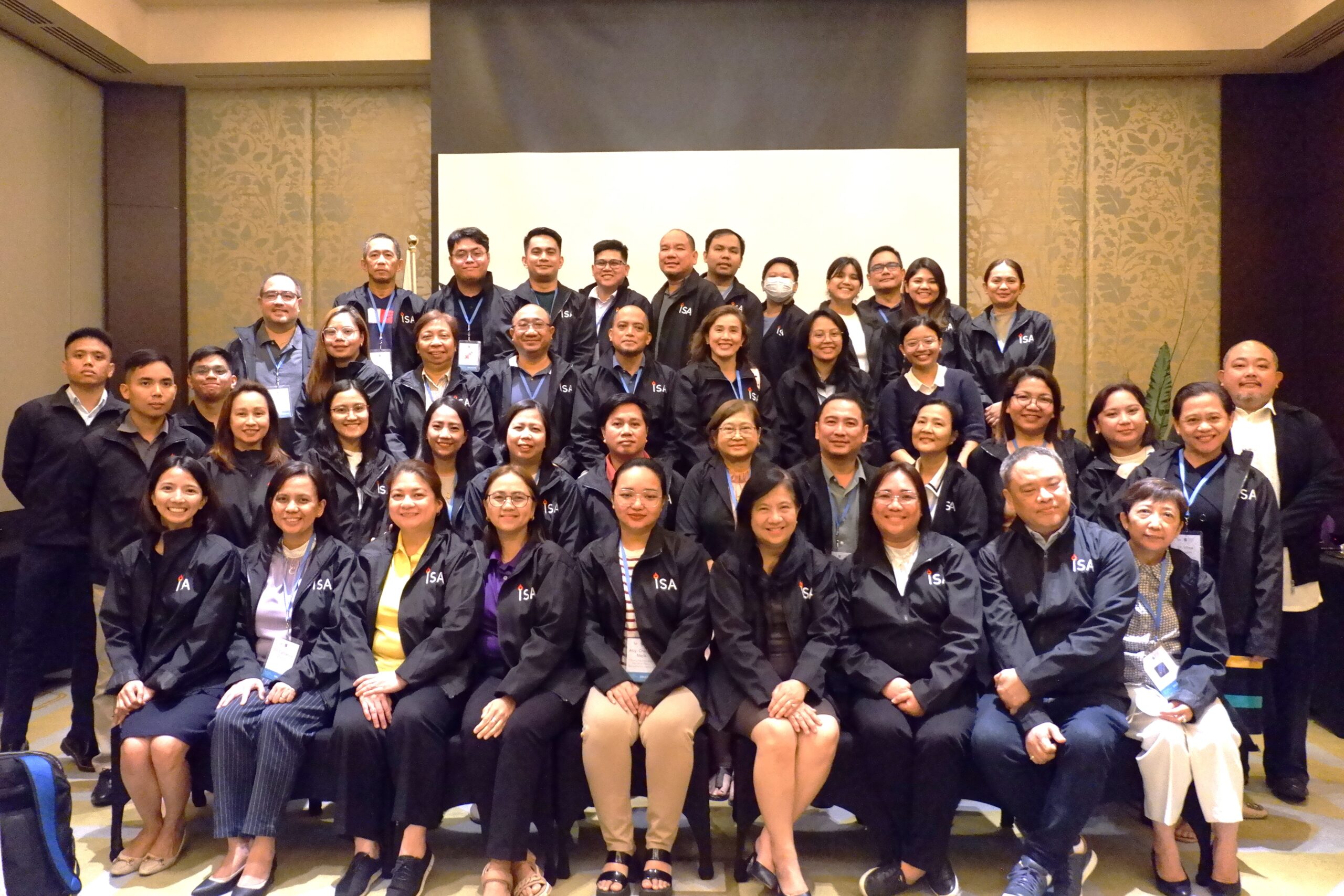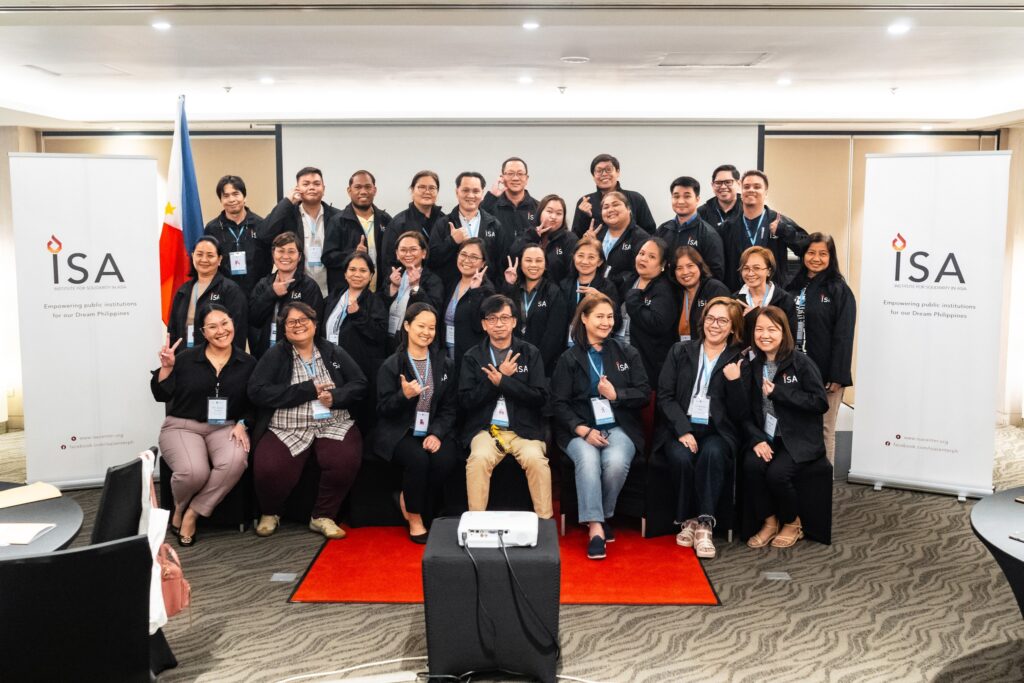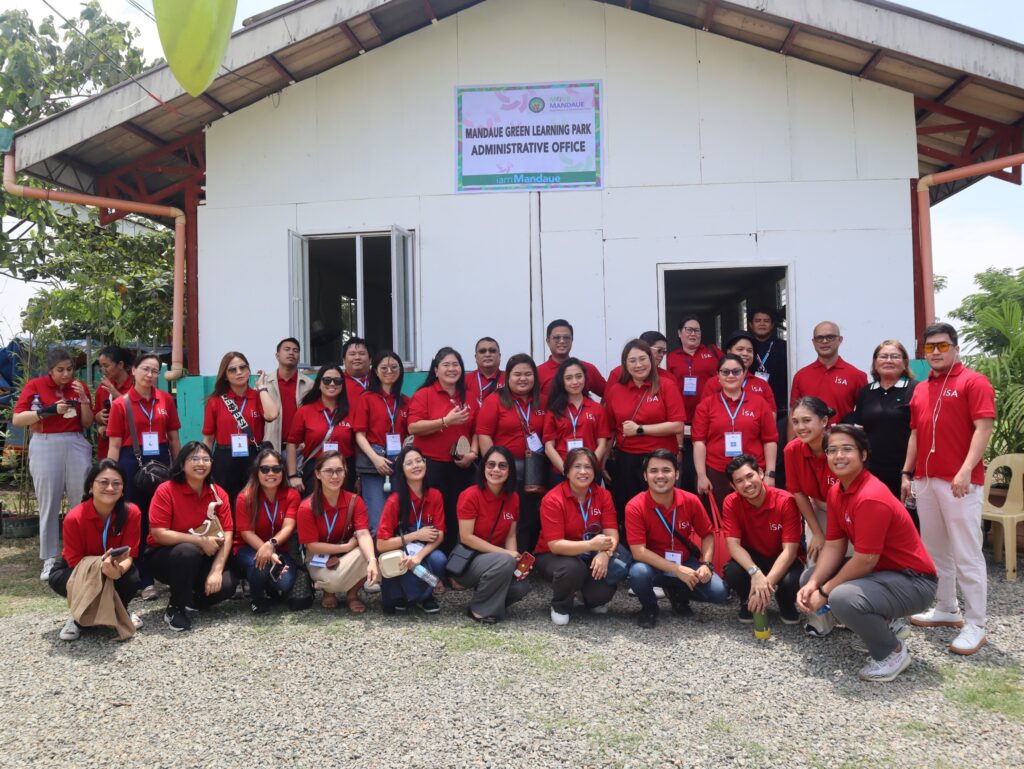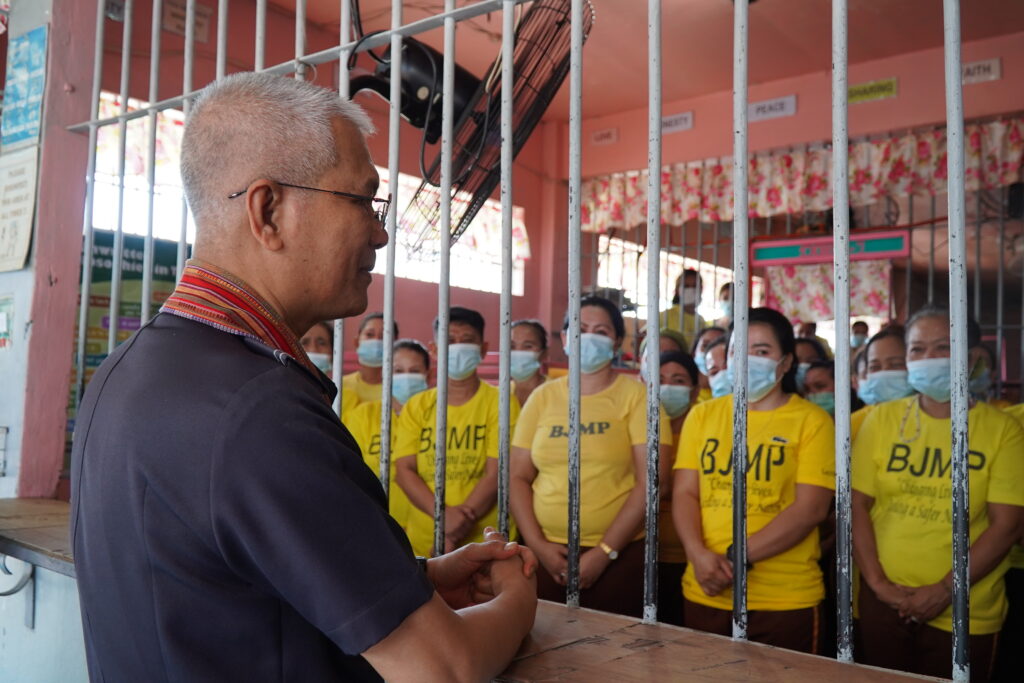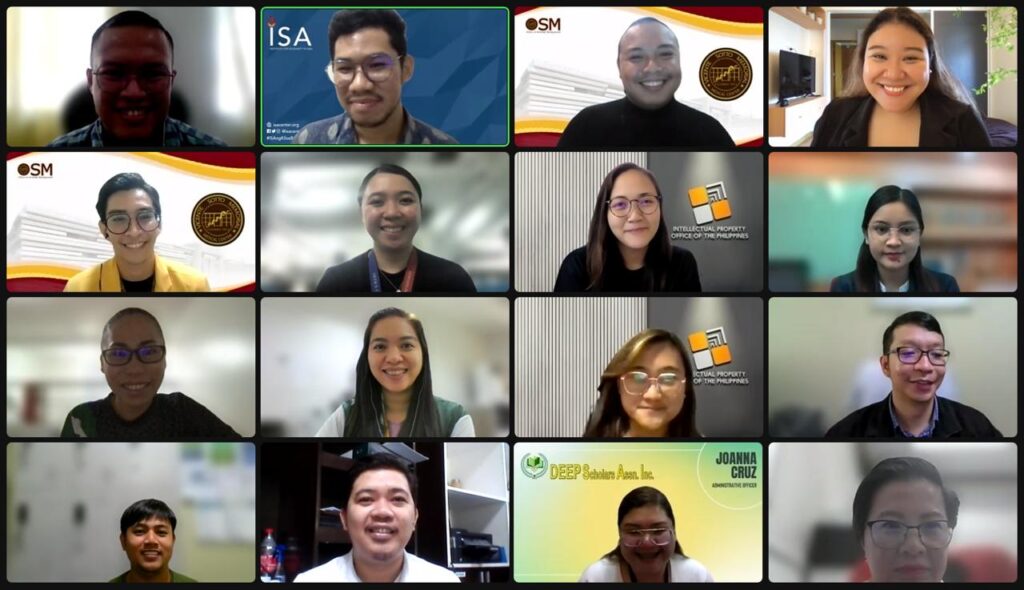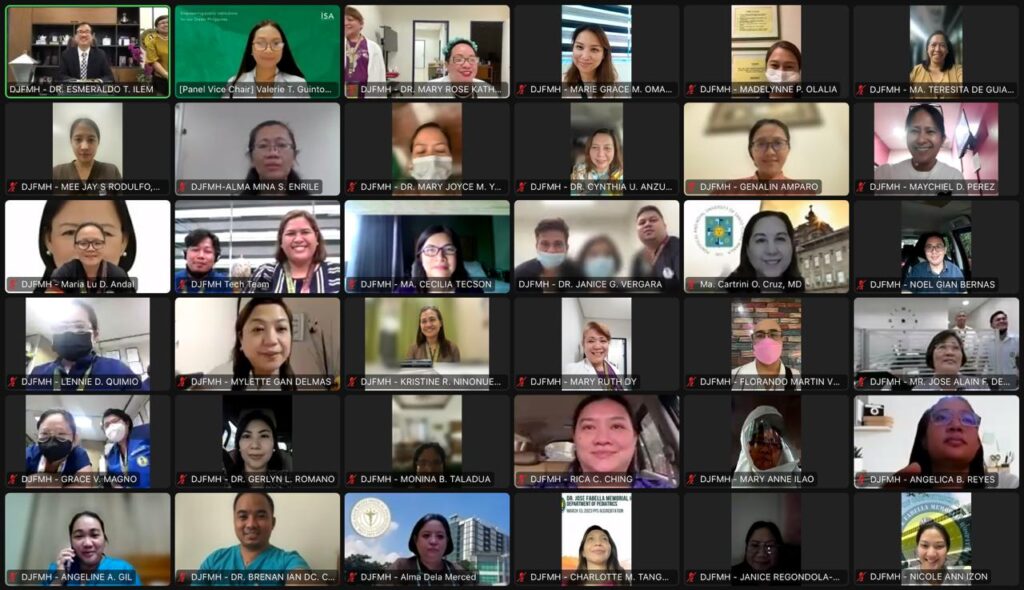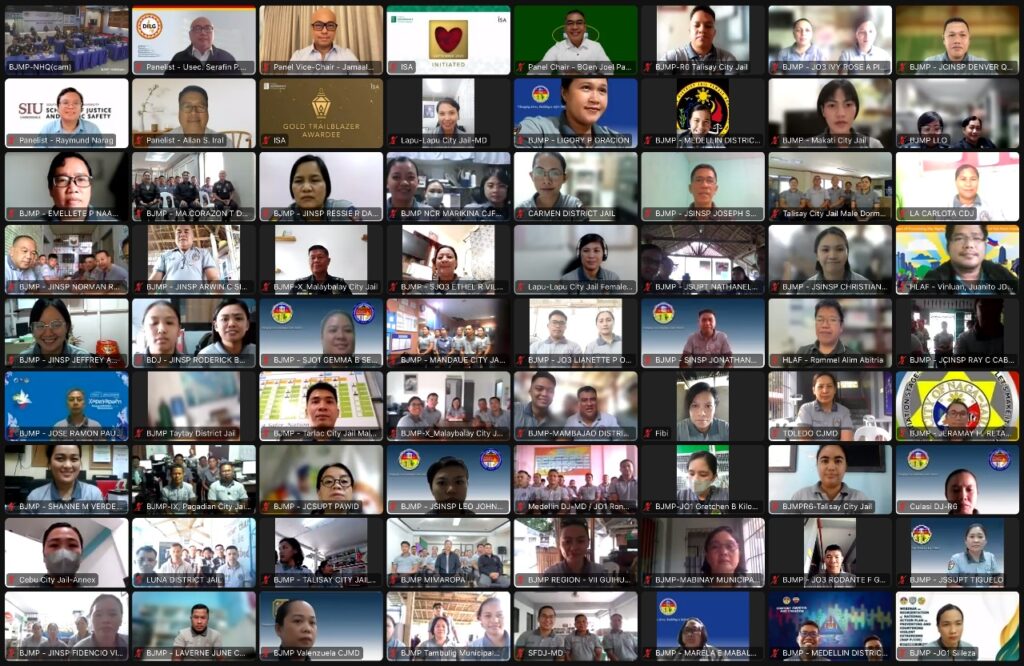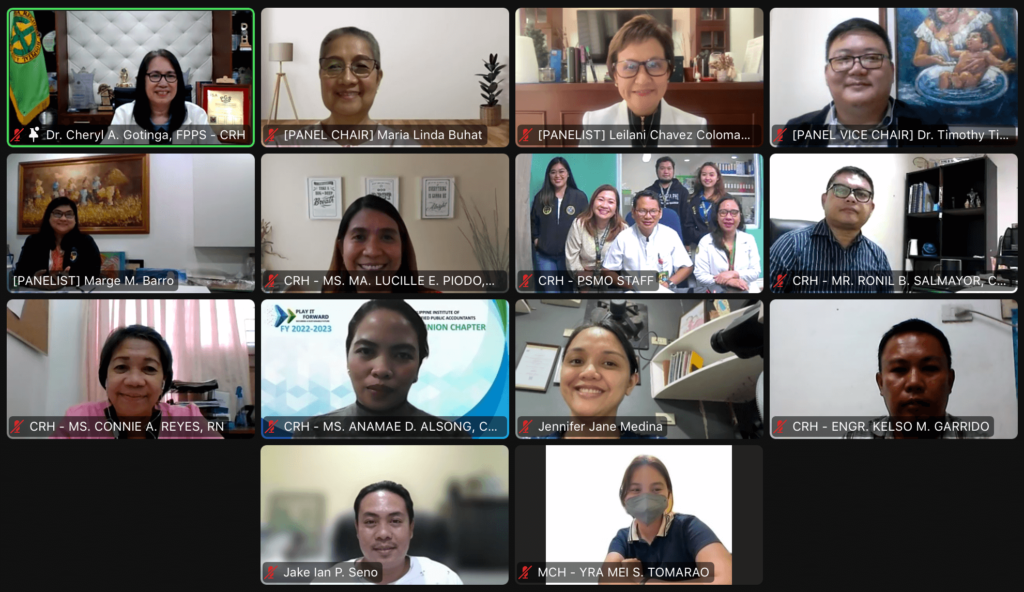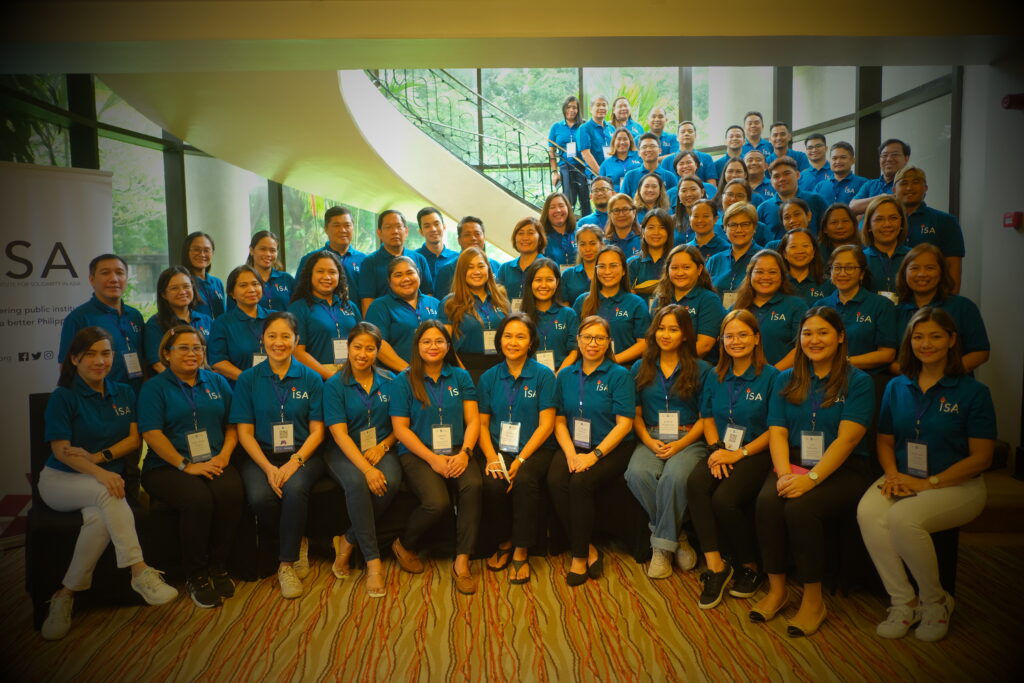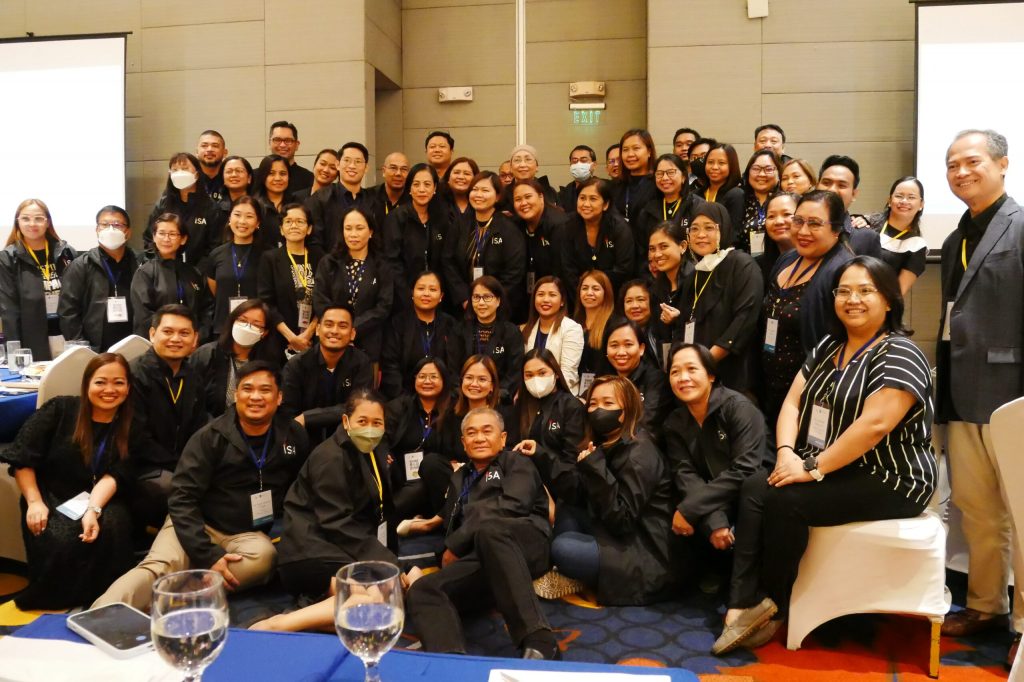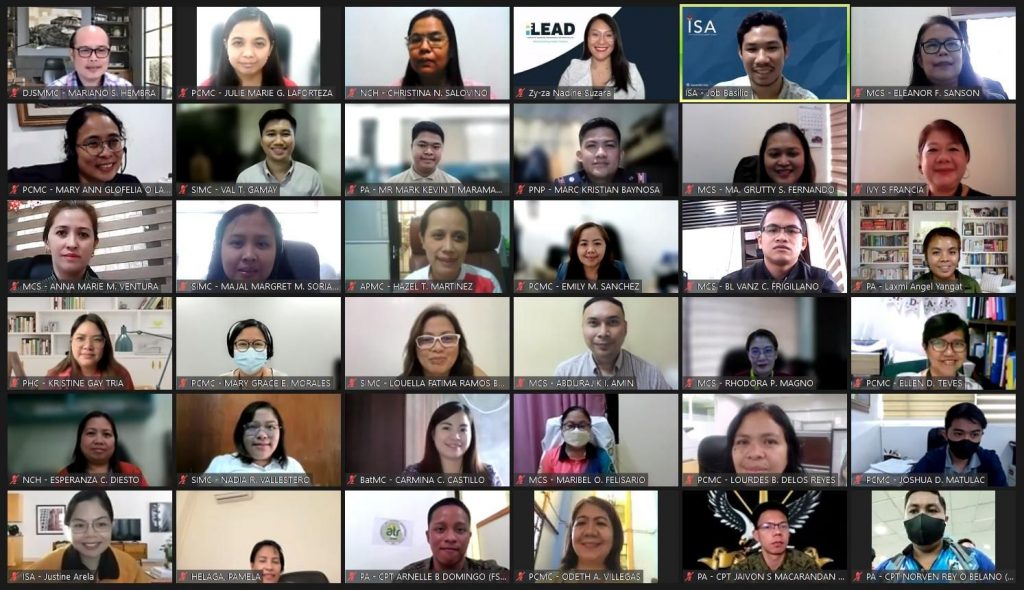“Results don’t happen overnight. It may sometimes take years, even decades, to make an impact that may not even be immediately felt, but gradually heard.”
This noteworthy sentiment from the Institute for Solidarity in Asia’s (ISA) Chief Executive Officer, Mr. Evaristo “Titoy” Francisco, Jr., was just one of the highlights of the Governance Boot Camp: Master Class for National Government Agencies (MCN), held from May 14 to 17, 2024, at the Crimson Hotel in Muntinlupa City. The event, which brought together 50 delegates from nine organizations, also featured new participating institutions: the Bangko Sentral ng Pilipinas and the Department of Finance.
The highly-anticipated ISA flagship event began with a networking activity to foster rapport among the participants. It wrapped up with an engaging Solidarity Night with the theme “Celestial”, where Mr. Francisco officially welcomed the participants, reminding them that while change does not happen overnight, attending the Master Class was already a significant step in their journey.
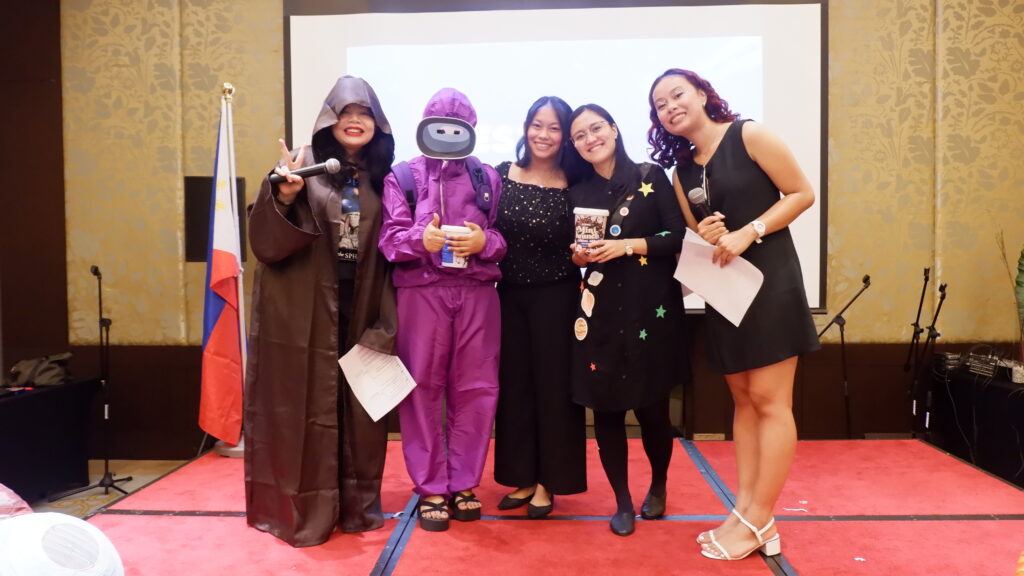
“[Change will not] transpire in the span of a three-day event such as this one. However, every ‘great, big thing’ begins with a single step, and your presence here today signifies a giant leap forward in our collective journey toward our Dream Philippines,” he said.
The first day of the MCN began with the Mastering Monitoring and Evaluation Essentials module, featuring Dr. Enrique E. Lozari, President of the Pilipinas Monitoring and Evaluation Society and RBI Consulting, an advisory firm that assists government agencies, bilateral and multilateral organizations, civil society groups, and private entities with results-based management (RBM) and monitoring and evaluation (M&E).
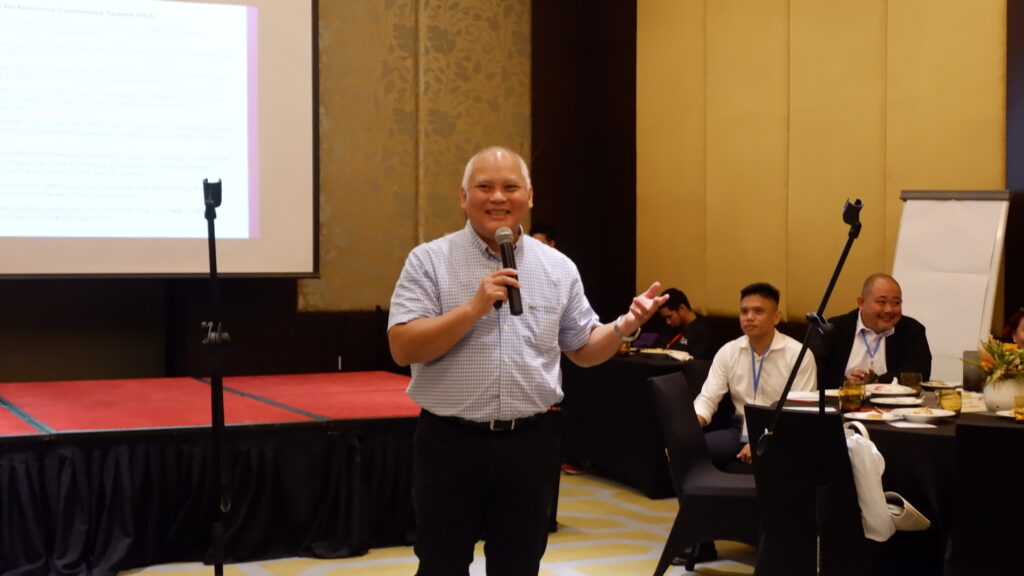
This module provided participants with essential tools and methods for conducting effective performance reviews, data analysis, and impact assessments and enabled them to analyze and validate performance data, ensuring that organizational strategies remain on track through regular monitoring.
Dr. Lozari covered several key areas: Results-Based Management (RBM), Theory of Change (ToC), Results Framework (RF), Monitoring & Evaluation Framework (MEF), implementing the MEF, evaluation, and impact evaluation. He also highlighted the critical processes of data collection and analysis to achieve the organization’s target results. Additionally, he noted that the MEF (indicator) and RF (impact) should be identified together to maintain consistency throughout the evaluation process.
Following this, participants engaged in a case study exercise, where they placed their own organizations in scenarios facing challenges such as misalignment between individual performance targets and organizational goals, inadequate project execution, task duplication, low customer satisfaction, resistance to change, fragmented communication of reform initiatives, increased workload, and neglect of core tasks. The participants then commenced group brainstorming sessions facilitated by ISA staff, where Dr. Lozari offered valuable insights and recommendations for improvement.
On the second day, Ms. Mariciel E. Estacio, Chief of the Human Resource Development Division at the Philippine Veterans Affairs Office (PVAO), kicked off the module “Beyond Strategic Contributions” with a detailed account of the development of PVAO’s Kagitingan Roadmap. This roadmap aligns organizational policies with goals, empowers the veterans’ community, and motivates future defenders.
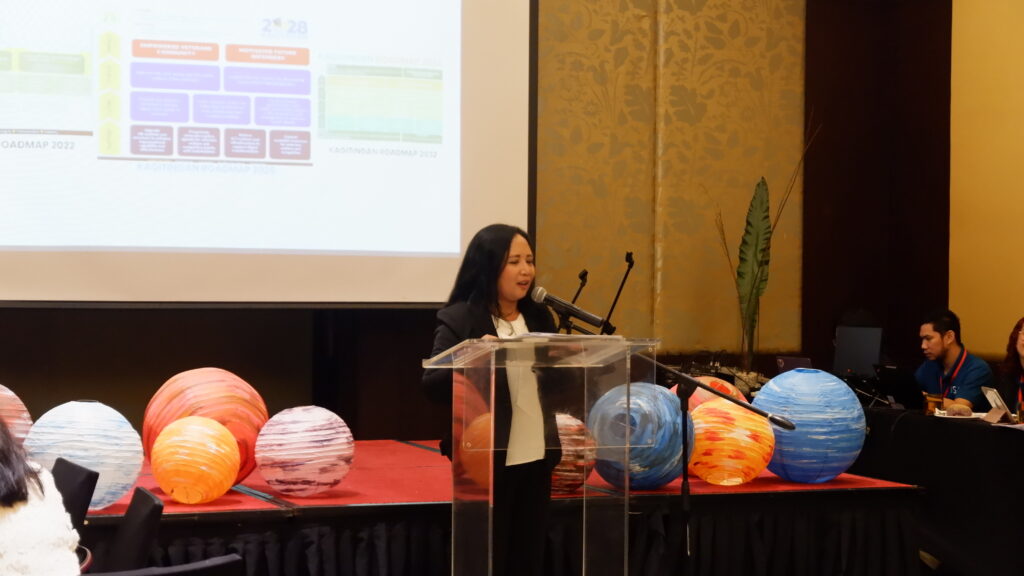
Developed with the help of ISA, the Kagitingan Roadmap 2022 addresses the challenges of strategy implementation, utilizing ISA’s Performance Governance System (PGS) to provide tools like scorecards for participative strategy execution. PVAO’s Core Team, trained in PGS and Prime HRM, conducted information drives and cascading sessions, while the Multi-Sector Governance Council (MSGC) offered advisory support and technical assistance without compensation.
“[Through the PGS], we now have a common direction. We can now collectively steer our organization to where we want it to be,” Ms. Estacio said.
She also shared PVAO’s journey toward creating a Harmonized Strategic Performance Management System (SPMS) and emphasized the importance of aligning individual performance with the agency’s vision, mission, and strategic goals to ensure that both employees and the organization achieve their strategic objectives. She then discussed the four cycles of SPMS: Performance Planning, Monitoring and Coaching, Rewarding and Development Planning, and Performance Review and Evaluation. Arguably the most critical stage of the cycle, she highlighted the significance of Monitoring and Coaching, adding that open discussions are encouraged in PVAO, especially on issues or matters that need attention.
“We also ensure issues and concerns are raised to the management committee to get recommendations for addressing them,” she said.
Moving on to the next segment of the program, a module entitled “Beyond Strategy Reviews” was led by Dr. Kenneth G. Ronquillo, Undersecretary of Health for the Universal Health Care (UHC) – Policy and Services Cluster at the Department of Health (DOH). Dr. Ronquillo began by outlining the DOH’s foundational aspects, including its mandate, organizational structure, executive committee, and management systems. He highlighted the challenges stemming from independently introduced and implemented systems, which led to duplication in target setting and monitoring activities.
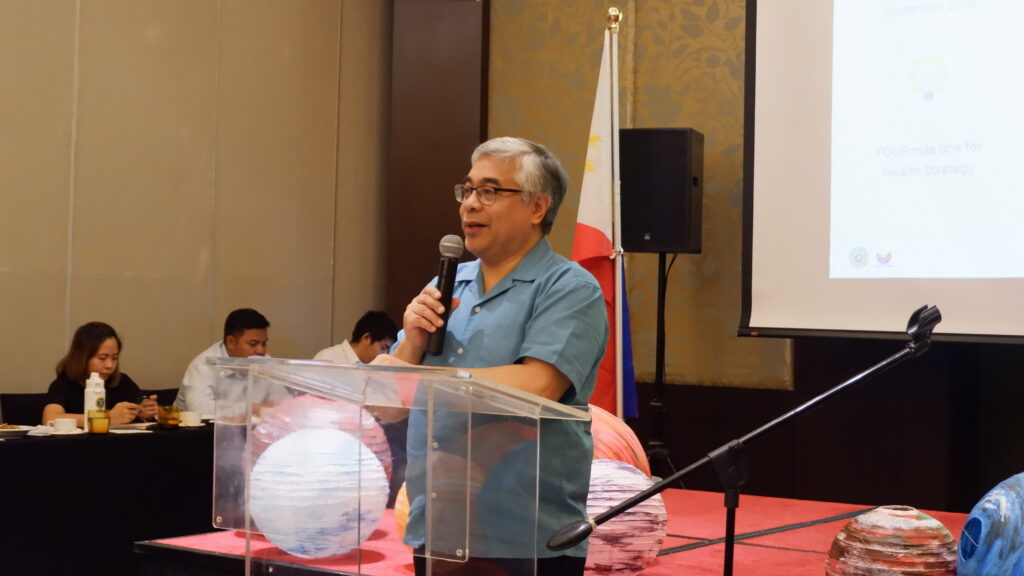
“[The] most important aspect of going through this process is that as organizational units, dapat naiintindihan niyo yung mandates of your organization. If you are able to understand the mandates of your organization, you will know your needs as an organization, you will know your existence,” he said.
Dr. Ronquillo further elaborated on the DOH Performance Management System using the PGS Design and PGS Execute framework, encompassing the following: Planning, Execution, Monitoring & Reporting, and Evaluation. Highlighting the department’s achievements, he cited prestigious recognitions like the Gold Trailblazer Award and certification in Quality Management System. Moreover, he underscored the DOH’s notable accomplishments during the COVID-19 pandemic, including the Philippines’ high rank in the Nikkei Asia COVID-19 Recovery Index and the significant public satisfaction with DOH performance alongside the DSWD.
The final day of the MCN commenced with Ms. Zy-za Nadine N. Suzara, Executive Director of the Institute for Leadership, Empowerment, and Democracy (iLead), leading a discussion on the module, “Beyond the Multi-Sector Governance Council (MSGC).” She emphasized the pivotal role of engaging all stakeholders comprehensively in government planning, particularly in budgeting, where public concerns significantly influence program and project success.
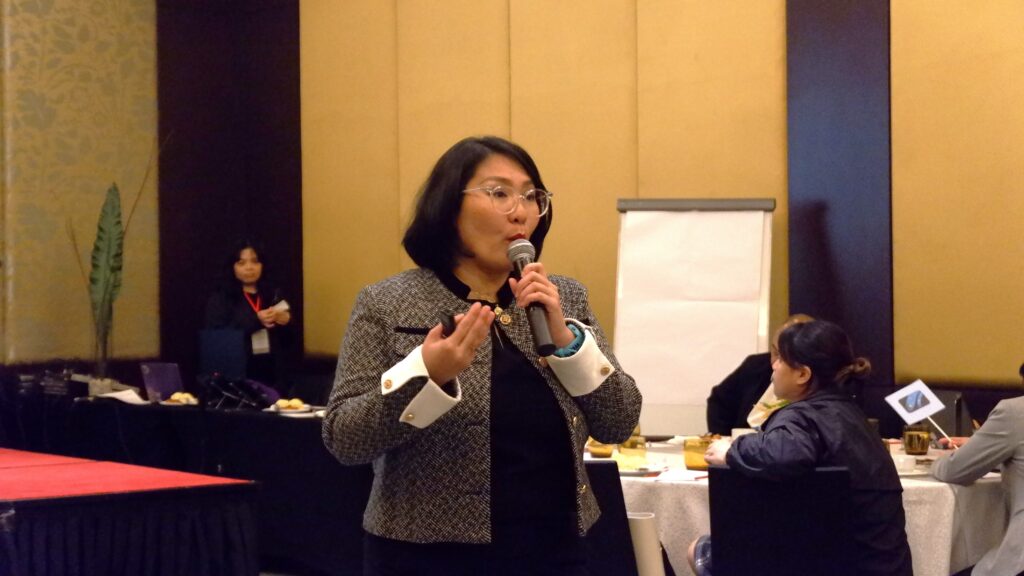
Ms. Suzara prompted a reflection on identifying stakeholders, defining them broadly to include youth, academia, civil society organizations (CSOs), women, former combatants, and community members who benefit from programs. To effectively engage relevant stakeholders, she said mastering “dialogue tools” is essential to foster trust and collaboration. These tools include Multi-stakeholder Dialogue, Generative Dialogue, Sustained Dialogue, and Public Conversations.
“Public dialogues [are an important] tool for participatory democracy,” Ms. Suzara said. “The four tools are primarily about establishing trust and confidence between governance and civil society.”
To officially cap off the Master Class, ISA Vice Chairman Mr. Rex C. Drilon II delivered an inspiring and poignant discussion entitled, “Sustainability Beyond Institutionalization.” He discussed the essentials of sustaining governance reforms, issuing a challenge centered on ethics, integrity, solidarity, shared values, and social responsibility to overcome obstacles to PGS sustainability.
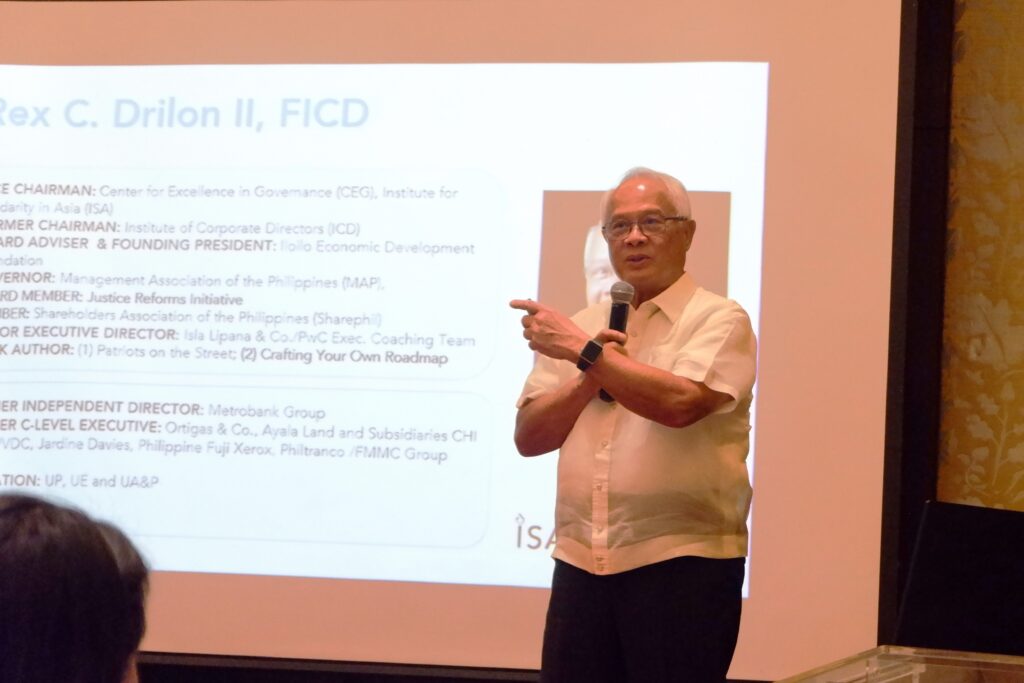
Mr. Drilon also emphasized personal governance as foundational to one’s journey of growth and development. He introduced the concept of a “Personal Strategy Map” as a guiding compass, highlighting four key elements: Core Values, which include love for God, country, family, community, and friends; Personal Mission Statement, which articulates one’s unique contribution to the world; Personal Vision Statement, which paints a clear picture of the future one aspires to achieve, and Strategic Areas, which outlines specific goals and objectives, detailing the steps to transform vision into reality.
“Start with personal advocacies, then strengthen the family – where values are formed,” he said. “Public institutions are where values are practiced.”
The MCN concluded with the announcement of the winning group, Team Rocket, and the recognition of CG ENS DAN VIR ANDREW F CALANOGA from the Coast Guard Human Resource Management Command, as the MCN’s Ultimate Governance Warrior.
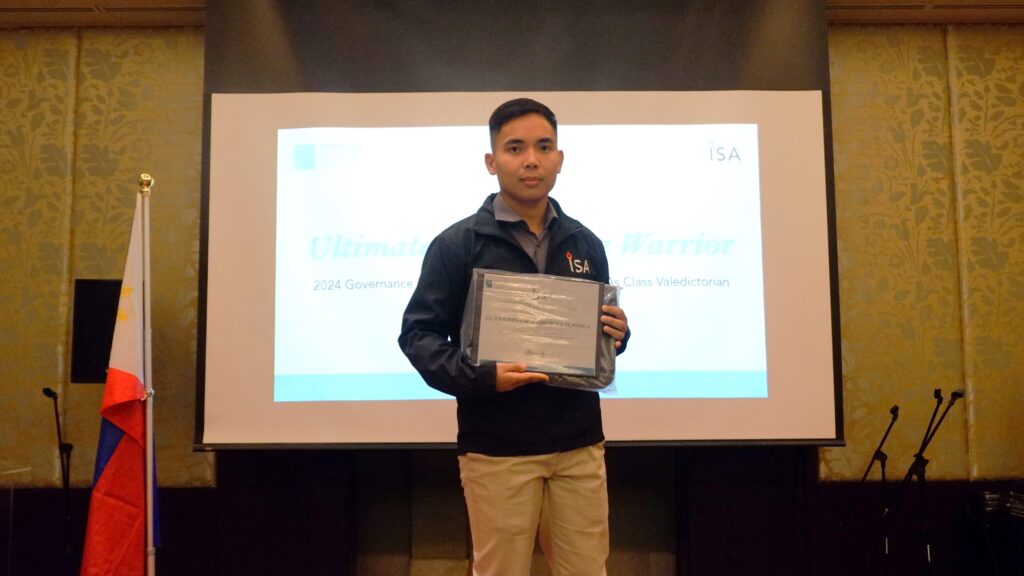
In his acceptance speech, CG CALANOGA inspired and reminded the delegates that no organizational position can limit their potential and contributions toward achieving their institutional goals.
“As a junior officer from the Philippine Coast Guard, relatively, yung position na hawak namin sa organization is medyo mababa pa. But that didn’t stop us from thriving for change, from bringing about transformation in our organization,” he said. “So, with the crowd here composed of individuals with immense background and knowledge and holding key positions, I believe that everyone here will create bigger change as they go up to their respective organizations.”

